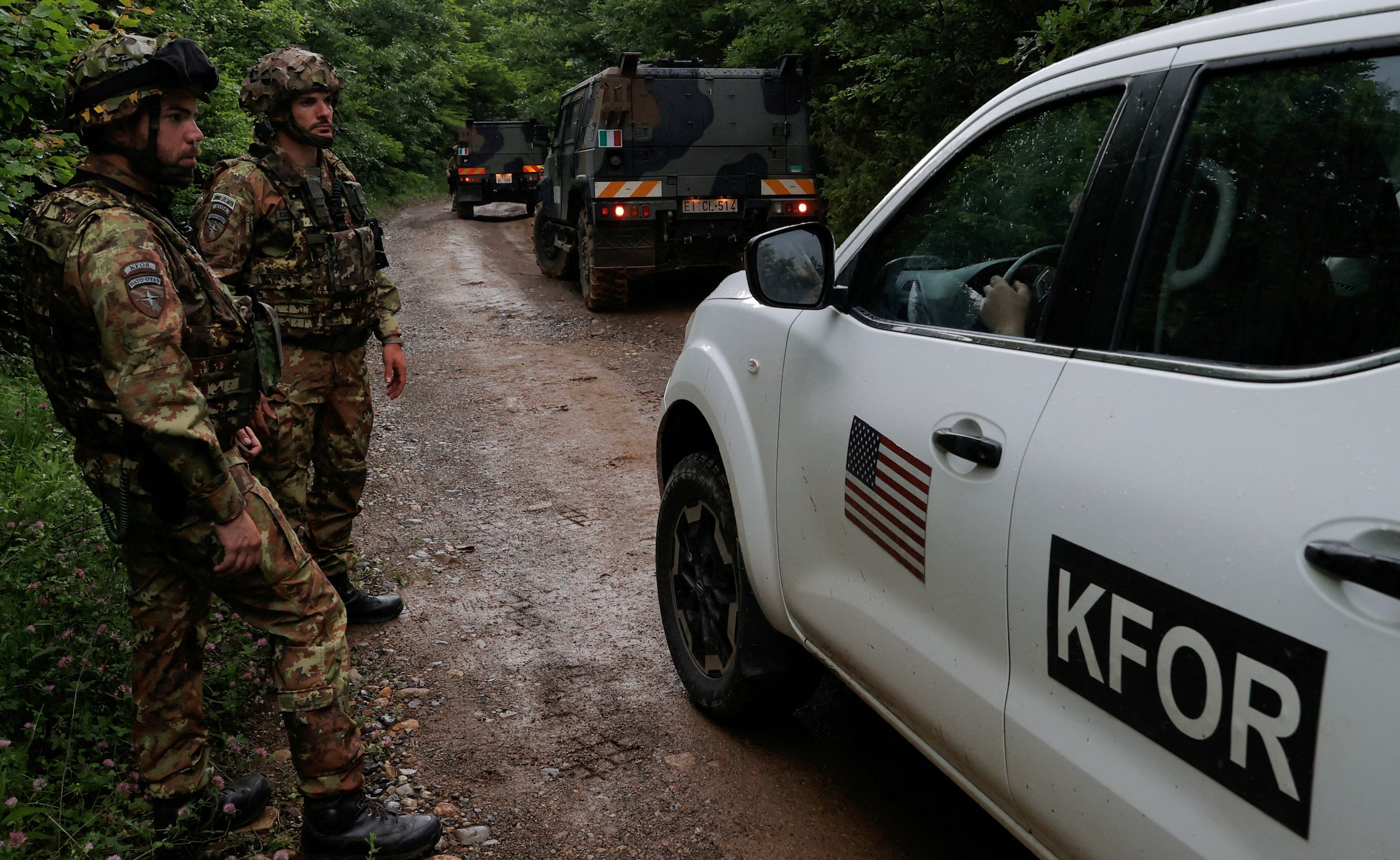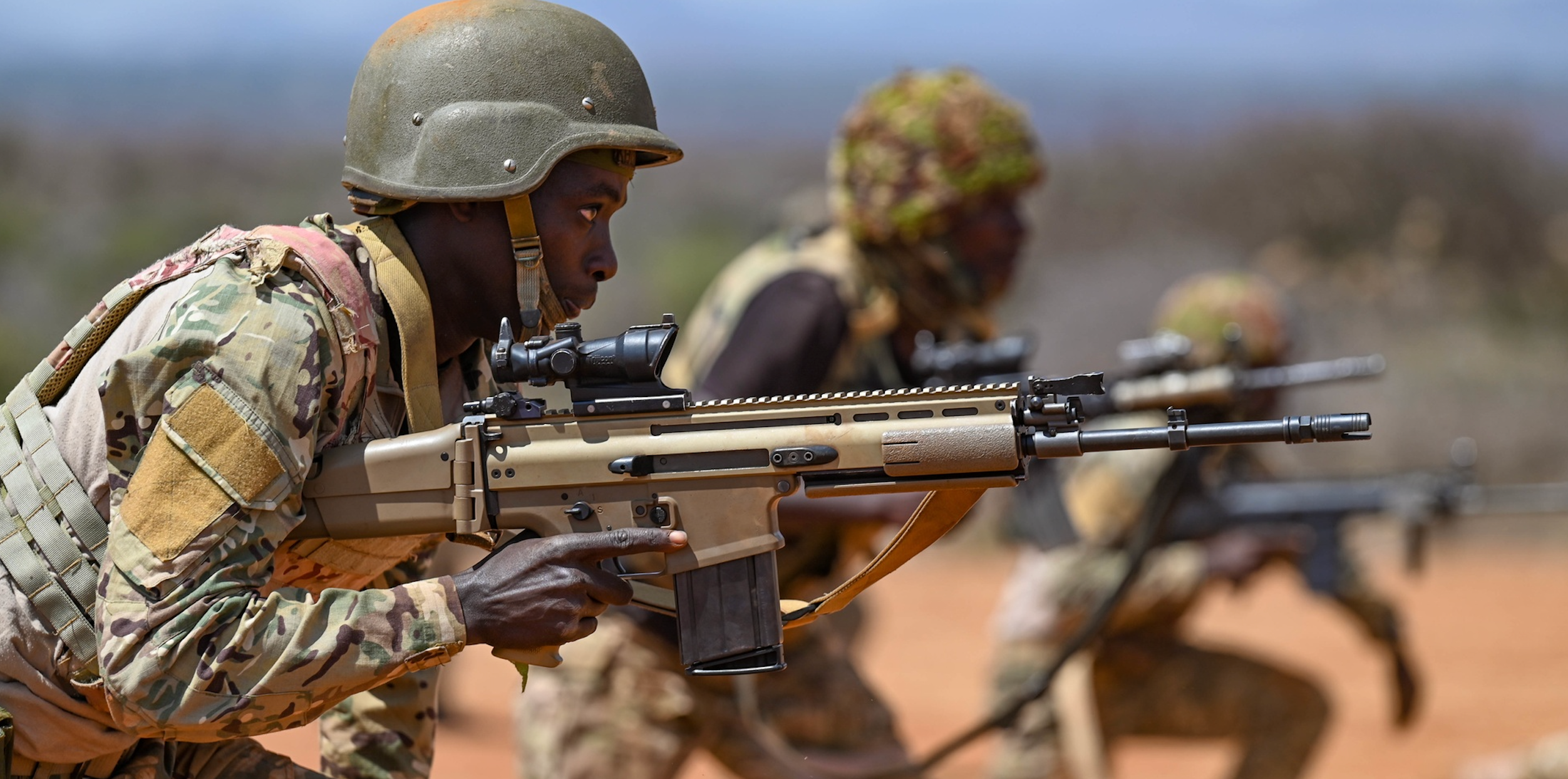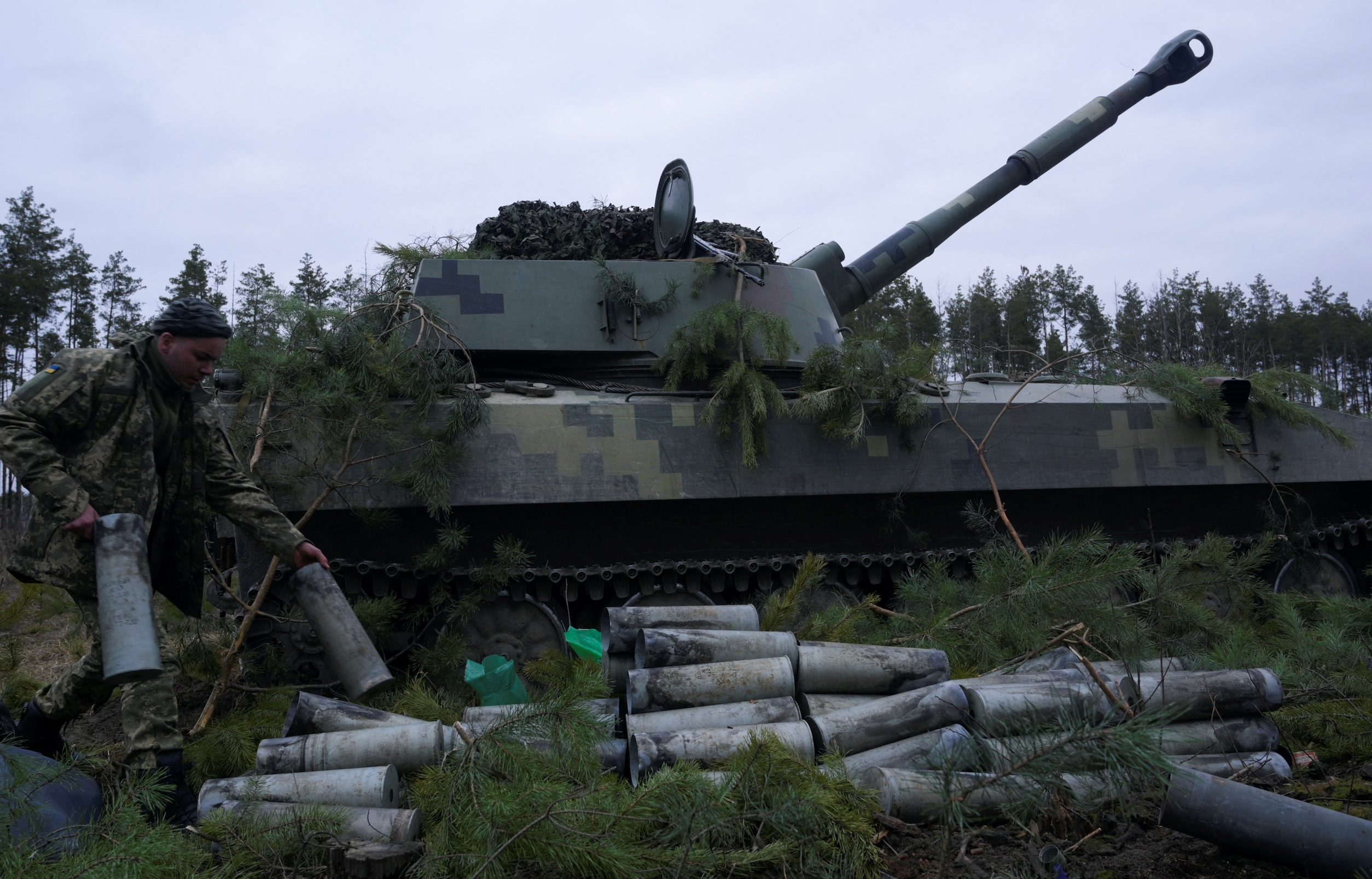
Kosovo and Serbia show no progress in defusing tensions, NATO official says
PHOTO CAPTION: Italian soldiers assigned to NATO’s Kosovo Force (KFOR) guard a site outside the village of Bare, Kosovo, June 14, 2023. (Reuters)
By Fatos Bytyci
PRISTINA (Reuters) - A senior NATO official said on Wednesday Kosovo and Serbia had not heeded international calls to take steps to de-escalatingtensions involving ethnic Serbs in Kosovo's north which have threatened NATO peacekeepers.
Violence in north Kosovo, where 50,000 Serbs live and form a local majority, erupted in late May after ethnic Albanian mayors took office following a local election boycotted by Serbs demanding implementation of a decade-old deal for more autonomy.
"We have seen no progress towards de-escalation. This endangers the security and safety of all people in Kosovo, as well as that of NATO's personnel," Thomas Goffus, assistant secretary general for operations at NATO, told a group of journalists in Pristina, Kosovo's capital.
Goffus said 93 peacekeeping soldiers in the NATO mission, known as KFOR, had been injured in clashes with Serb protesters, some of them severely. Doctors in the north said 52 Serbs were also injured in the protests on May 29.
"This is absolutely unacceptable and cannot happen again. NATO has made this position clear also to the Serbian authorities," Goffus said.
The situation remains tense in the north where KFOR troops are guarding municipality buildings. Kosovo police are inside, and small numbers of local Serbs are protesting outside.
NATO, which deployed peacekeepers in Kosovo in 1999 after air strikes that halted a brutal Serbian crackdown on an uprising by majority ethnic Albanians, added 700 soldiers to KFOR after the May violence, for a total of about 4,500. It has also put another battalion on high alert for deployment.
Kosovo declared independence from Serbia in 2008 and won recognition from over 100 countries, mainly Western, but not Serbia, Russia or China.
The United States and European Union, Kosovo's main allies, have mainly blamed nationalist Prime Minister Albin Kurti for tensions in the north, including the installation of ethnic Albanian mayors despite the election boycott by Serbs.
"Unfortunately, we have seen a decline in our practical and political coordination (with Kosovo). This runs counter to the Euro-Atlantic aspirations of the Kosovar people," said Goffus.
He said that after Russia's February 2022 invasion of Ukraine, Europe was at a critical juncture. "Nobody should risk another conflict in Europe that would undermine the peace and stability gained with so much sacrifice," he said.
(Reporting by Fatos Bytyci; editing by Mark Heinrich)









